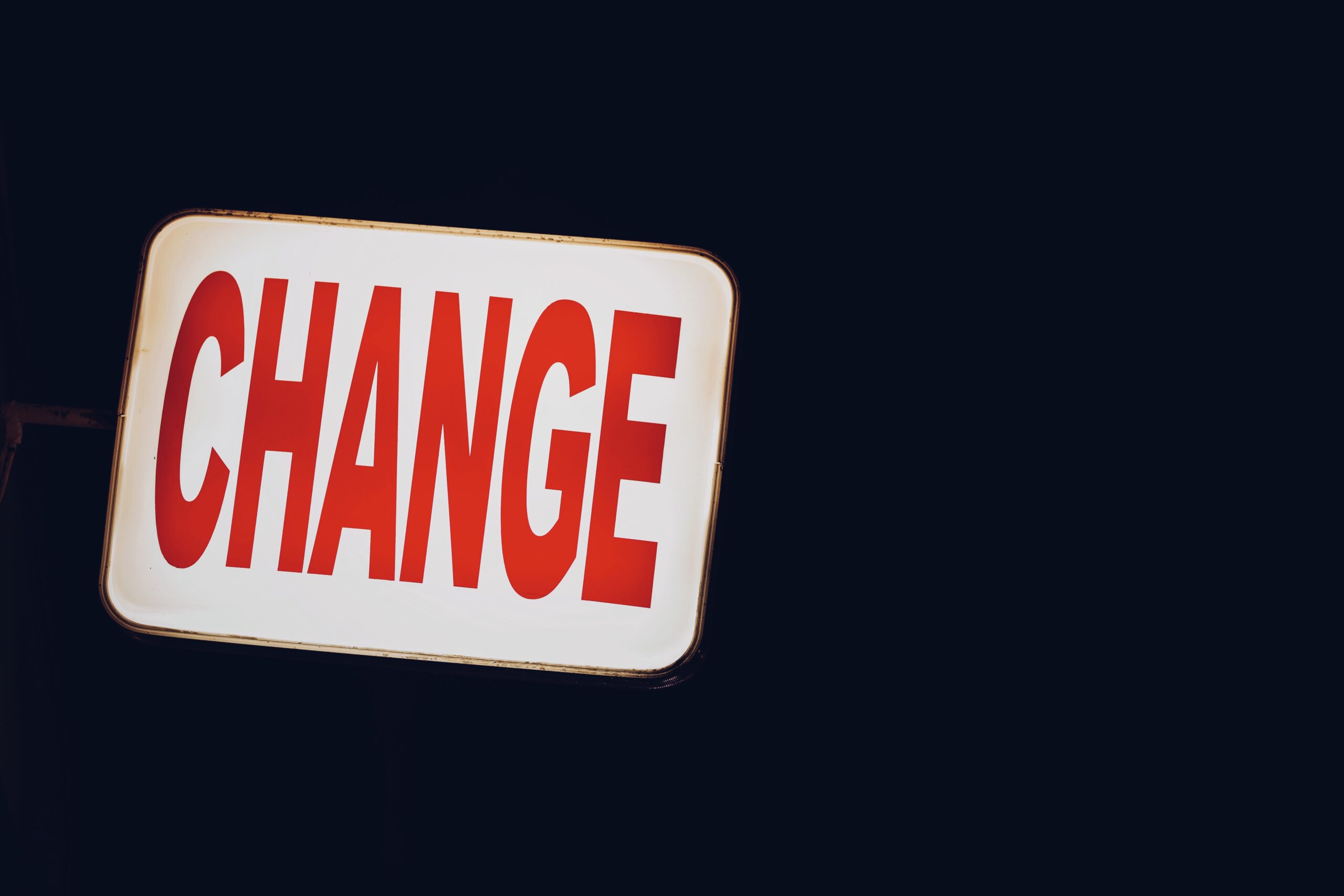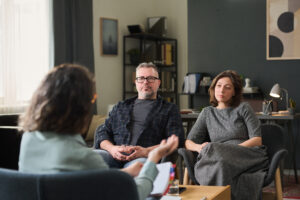If change was easy, everyone would have the relationship they want, the job they want, the physical health they want. But it’s not easy! Change is incredibly difficult because real, lasting change happens from the inside out. What does this mean? If you attempt to change behaviors without first addressing the underlying beliefs that are driving the behaviors, change will be superficial and temporary at best. Dr. Hawkins talks about the 3 biggest obstacles to change, and why these three things must be addressed before change can occur.
The 3 Obstacles to Change is part of a comprehensive treatment program developed by Dr. Hawkins and the Marriage Recovery Center designed to break down the defense mechanisms and thinking errors that prevent men from experiencing healthy relationships. Contact us to learn more about The Men’s Core program. You can also reach out to us to request for a copy of the free ebook written by Dr. Hawkins “Getting to the Core” which explains more in-depth our approach to emotional wholeness for healthy relationships.
The 3 Biggest Obstacles To Change
Change, in theory, should be a rather simple process, right? Once we tell someone that they need to change, and once they tell us that they’re going to change, then change should just happen, right?
Well, not at all. Dr. David Hawkins, the director of the Marriage Recovery Center and the Emotional Abuse Institute, discusses three primary obstacles to change, particularly in the context of narcissism and emotional abuse. These obstacles are defense mechanisms, thinking errors, and distorted views of the world. Let’s delve into each of these challenges:
1. Defense Mechanisms
Defense mechanisms are like protective shields for our emotions. They serve the purpose of defending us from feelings of shame, guilt, discomfort, and inadequacy. While they may work in the short term, relying on these defense mechanisms can be counterproductive in the long run. Common defense mechanisms include rationalization, justification, minimization, making excuses, and blame-shifting.
For instance, playing the victim or dismissing the significance of one’s actions are forms of defense mechanisms. When someone employs these tactics, they shield themselves from taking responsibility and, consequently, hinder any potential for change. This inability to own up to their actions or behaviors leaves them hopelessly stuck in their ways. To achieve meaningful change, one must first acknowledge their actions and their impact on others.
Recognizing these defense mechanisms not only helps us understand the behavior of others but also encourages self-awareness. We should be vigilant about these patterns in our own actions and strive to take responsibility when necessary, rather than resorting to these defense mechanisms.
2. Thinking Errors
Thinking errors, also known as cognitive distortions, are patterns of thinking that distort reality. These errors can be detrimental to personal growth and change. Some common thinking errors include all-or-nothing thinking, black-and-white thinking, and failure to consider the impact on others.
All-or-nothing thinking involves viewing situations in extreme, polarized terms, while black-and-white thinking fails to acknowledge the shades of gray in between. Personalization thinking attributes external events to oneself, leading to unnecessary guilt or blame.
Thinking errors can be a significant impediment to change because they reinforce rigid and inaccurate beliefs about the world and one’s role in it. When confronted with these thinking errors, individuals may become defensive, making it difficult to engage in productive change. It’s essential to challenge these distortions and adopt a more flexible and realistic perspective to facilitate personal growth.
3. Distorted Views of the World
A distorted view of the world often manifests in individuals struggling with narcissism and emotional abuse. This distorted perspective can include an attitude of superiority, a belief that everything revolves around them, and an unwillingness to consider alternative viewpoints.
In such cases, the saying “first thought wrong” becomes relevant. Individuals with a distorted worldview often believe that their initial perspective is always correct. They may resist feedback and resist changing their beliefs or behaviors. This distorted view creates a significant barrier to change and personal growth.
To overcome this obstacle, individuals with distorted views of the world must learn to acknowledge their inherent biases and consider alternative perspectives. This process can be challenging and may require professional intervention, as it often involves unraveling deeply ingrained beliefs.
In conclusion, change is not as straightforward as merely deciding to do things differently. The three primary obstacles to change – defense mechanisms, thinking errors, and distorted views of the world – all play a significant role in impeding personal growth and transformation.
Recognizing and addressing these obstacles is crucial for anyone seeking meaningful change in their lives. Treatment and self-awareness are essential steps in the journey toward eliminating these barriers and achieving lasting transformation.
To learn how we can help, reach out to us at (206) 219-0145 or info@marriagerecoverycenter.com to speak with a Client Care Specialist
Also read: 3 Lies of Emotional Abuse
About Dr. Hawkins:
The internet is inundated with hyperbole and misinformation about narcissism, leaving many people confused and hopeless. Get the facts on narcissism and emotional abuse from someone who has been researching, writing about and treating narcissism and emotional abuse for over a decade.
Dr. Hawkins is a best-selling author and clinical psychologist with over three decades of experience helping people break unhealthy patterns and build healthier relationships.
He is the founder and director of the Marriage Recovery Center and the Emotional Abuse Institute which offers education, training and counseling for people who want to break free of, and heal from, emotional abuse. Whether the perpetrator of the abuse is your spouse, partner, parent, boss, friend or family member, we offer practical advice for anyone trapped in a toxic, destructive relationship.
In addition to narcissism & emotional abuse, you’ll learn about the lesser known forms of abuse, including covert abuse, reactive abuse, spiritual abuse, secondary abuse, relationship trauma and much more.








